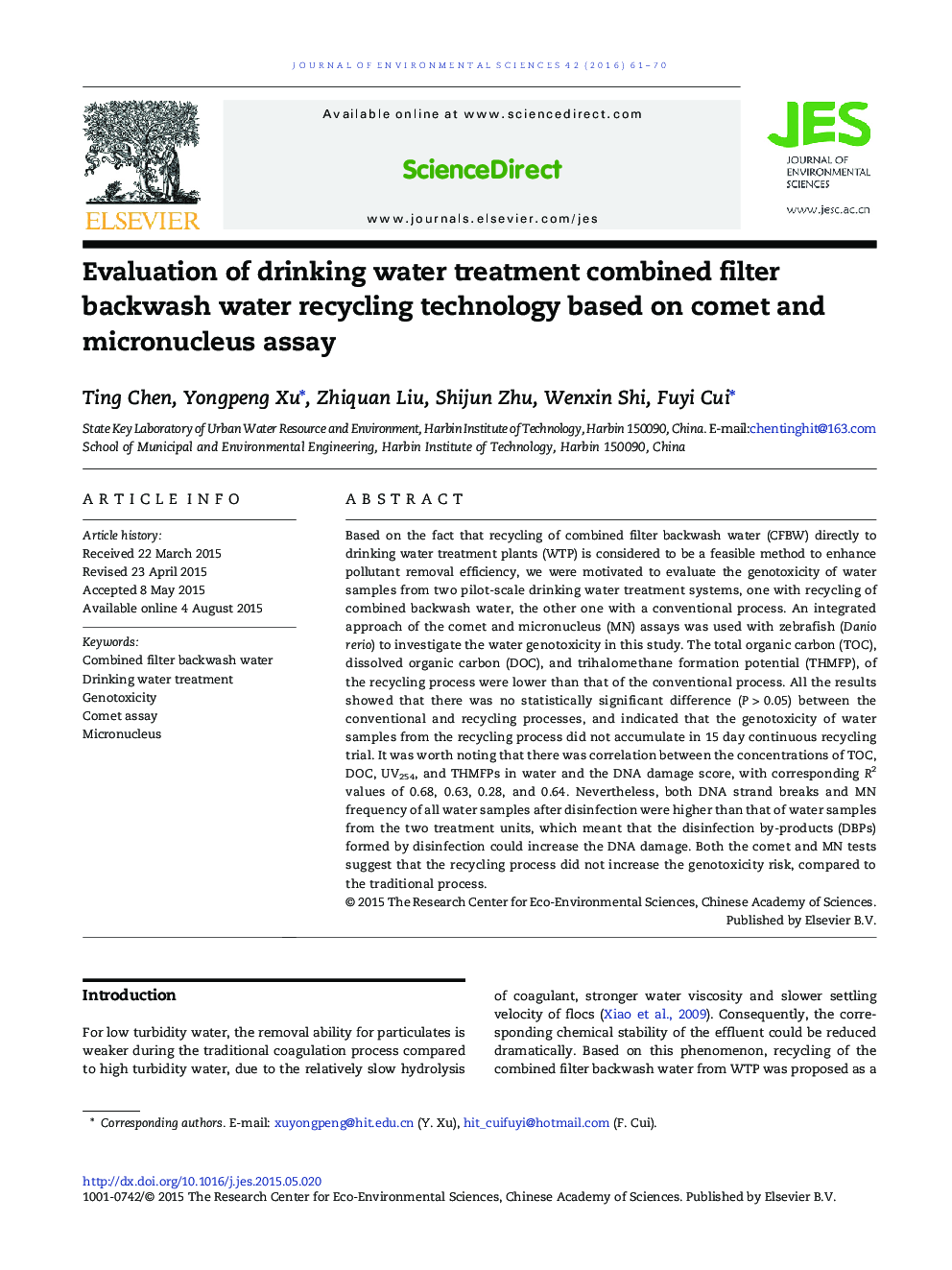| Article ID | Journal | Published Year | Pages | File Type |
|---|---|---|---|---|
| 4453790 | Journal of Environmental Sciences | 2016 | 10 Pages |
Based on the fact that recycling of combined filter backwash water (CFBW) directly to drinking water treatment plants (WTP) is considered to be a feasible method to enhance pollutant removal efficiency, we were motivated to evaluate the genotoxicity of water samples from two pilot-scale drinking water treatment systems, one with recycling of combined backwash water, the other one with a conventional process. An integrated approach of the comet and micronucleus (MN) assays was used with zebrafish (Danio rerio) to investigate the water genotoxicity in this study. The total organic carbon (TOC), dissolved organic carbon (DOC), and trihalomethane formation potential (THMFP), of the recycling process were lower than that of the conventional process. All the results showed that there was no statistically significant difference (P > 0.05) between the conventional and recycling processes, and indicated that the genotoxicity of water samples from the recycling process did not accumulate in 15 day continuous recycling trial. It was worth noting that there was correlation between the concentrations of TOC, DOC, UV254, and THMFPs in water and the DNA damage score, with corresponding R2 values of 0.68, 0.63, 0.28, and 0.64. Nevertheless, both DNA strand breaks and MN frequency of all water samples after disinfection were higher than that of water samples from the two treatment units, which meant that the disinfection by-products (DBPs) formed by disinfection could increase the DNA damage. Both the comet and MN tests suggest that the recycling process did not increase the genotoxicity risk, compared to the traditional process.
Graphical abstractRecycling CFBW directly to drink water treatment plant (DWTP) is considered as a feasible method in enhancement of pollutant removal efficiency and save water resource. An integrated approach of the comet and micronucleus (MN) assay was used with zebrafish (Danio rerio) to investigate and compare the genotoxicity of effluents from two pilot-DWTP in this study. Both of the comet and MN tests suggest that recycling process did not increase the genotoxicity risk, contrasting to traditional process.Figure optionsDownload full-size imageDownload as PowerPoint slide
